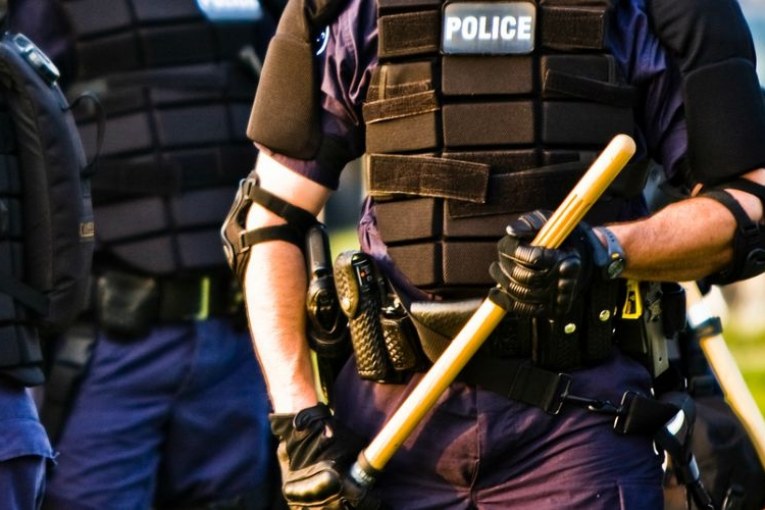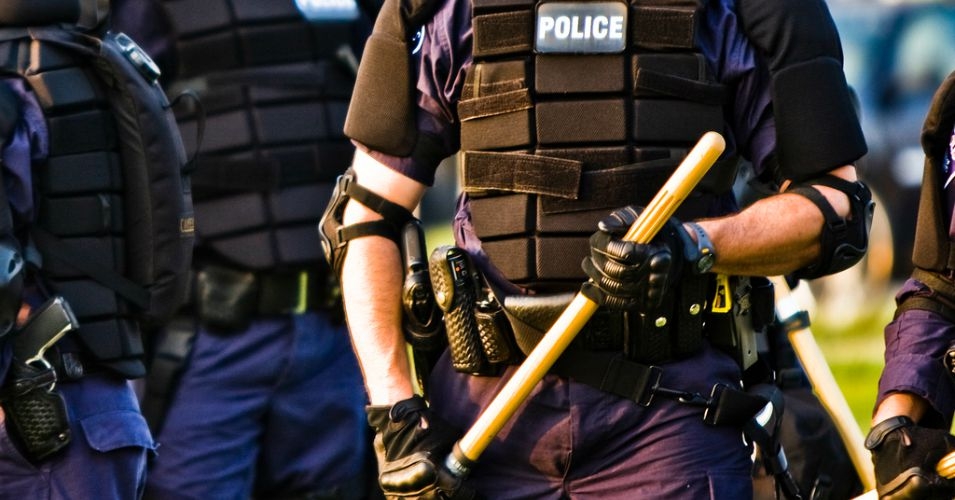

Reaction to the compromise of AB 392, the police use-of-force bill co-authored by Shirley Weber and Kevin McCarty, varies. Some are calling it a sellout, others believe California could have the strictest use-of-force standard in the country if the measure is signed into law by Governor Gavin Newsom, as seems likely.
Was this compromise what it took to get police reform passed in California, where liberal Democrats dominate both houses of the legislature and hold the governor’s mansion?
Some are asking this question in light of not only this bill, but several others. Last year the heavily Democratic state legislature punted on a new use-of-force bill. They watered down the bail reform bill to the point where the ACLU actually opposed it.
Over the weekend, the San Francisco Chronicle had a scathing editorial: “When it comes to courage, the state Legislature is missing in action.”
They argue: “This should have been a big year for Sacramento lawmakers… But Sacramento lawmakers seem to be missing in action. So far, most of the year’s biggest bills have gone nowhere.”
While they are mostly talking about housing, they could just as easily be talking about AB 392 this year, or the use-of-force bill from last year and bail reform.
The Sacramento Bee earlier this week writes that “recent adjustments to the bill to appease law enforcement may have weakened the legislation to the point where it doesn’t make much change at all, some political observers say.”
The Bee points out: “The changes softened language to give officers more leeway to determine when deadly force is necessary. The bill adds clauses letting officers use deadly force if they ‘reasonably’  believe a suspect poses a lethal or serious threat.
believe a suspect poses a lethal or serious threat.
“The changes eliminate a section that would have listed ways officers must try to defuse the situation if they deem it is safe to do so, replacing it with a line saying officers ‘shall use other available resources and techniques if reasonably safe and feasible.'”
“It is the intent of the Legislature that peace officers use deadly force only when necessary in defense of human life,” the new language says.
Is this enough? Well, the ACLU, for one, thinks so. While not ideal, the language was not watered down enough to compel them to oppose the measure like they did bail reform last year.
In the ACLU’s release they note that that the bill “will update California’s outdated use of force standard to require that police officers avoid using deadly force when there are other options. The bill will also help ensure officers are held accountable when they fail to comply with this new standard.”
They argue, “Changing the use of force standard in California will change the way officers are trained to pursue other, non-deadly, resources or techniques when engaging with the public. In cities with stricter use of force policies, police kill fewer people without any negative impact on law enforcement or community safety.”
But not everyone agrees.
Robert Weisberg, a Stanford University professor who is an expert on use-of-force law, believes that the bill wouldn’t significantly change the legal standard.
“Reasonably believe it to be necessary is really the law as it is now,” he told the Bee. “If they stick the word reasonably back in there, they may have undermined the intent.”
Activists themselves are also mixed.
Take embattled Black Lives Matter leader Tanya Faison was skeptical about the changes.
She told the Bee, “Anytime the police agree with something that has to do with holding them accountable… it makes my eyebrows raise.”
One prominent activist told the Vanguard, “I consider the bill to be a sellout and you can tell from the fact that police no longer have an objection to it.”
“The vagueness around what is considered ‘necessary’ or ‘reasonable’ for police has been the problem with the use of force policy in the first place. Courts allow police to stop anyone (particularly black people) for ‘reasonable suspicion’ of wrongdoing (Terry v. Ohio, 1967),” said one street activist.
“Courts allow police to stop and detain black drivers for ‘reasonable’ suspicion they violated traffic laws (Wright v. US, 1996). A bill that fails to define what is ‘necessary’ to de-escalate encounters and allows them to continue using what police consider ‘reasonable’ is meaningless. It means there will need to be another murder and non-indictment for lawmakers to realize they capitulated,” he said.
Another activist took a “big picture” view, noting she knows the measure isn’t perfect and that more legislation will be required.
“Every step towards law enforcement accountability is another step closer to the goal, even in its watered down version. Language leaves room for loopholes. But the people are watching so closely that when the first applicable case happens and JUSTICE doesn’t happen there is going to be hell to pay,” she said.
Something to consider is that, despite the Democratic stranglehold on the state, the leadership has been reluctant to go head to head against the police union. I still recall, in the days following the Copley decision in 2007, watching the Law Enforcement subcommittee fold like a house of cards as the police marched in, in full uniform.
It took until last year to get SB 1421 passed that finally addressed at least some of the issues laid out in the Copley decision.
The police unions were strong enough to stop similar legislation a year ago on a use-of-force bill. These compromises got them to drop their opposition now. By the same token, there was not a single no vote on this legislation, signaling its inherent weakness. Somehow you would think they could have pushed the envelope more than they did.
The question I have: is this really the strictest law in the country on use of force as CalMatters claimed yesterday and, if so, what does that say for the state of the law nearly five years after Michael Brown was killed in Ferguson, Missouri?
—David M. Greenwald reporting







Advocates are passionate by definition and essential to the democratic process. The views need to be heard from both ends of the political spectrum so that the “best” decision and law is achieved. Invariable, it’s somewhere in the middle of the two extremes.
As this particular instance reveals, advocates can “shoot themselves in the foot” in righteousness indignation when they don’t get everything they want. The above metaphor is used deliberately and ironically as the best manifestation of “unnecessary use of force.”
For all existing and aspiring passionate advocates, wanting a prime example of how NOT to accomplish your goals consider the following:
A newspaper editorial that calls the California Democratic Party cowards is cited in the context of criticizing the use of force legislation. The Chronicle was addressing an unrelated issue, housing. Extending the editorial’s scathing content to use of force is a deliberate distortion and deception and is a misrepresentation of the Chronicle and the California Democratic Party.
Don’t publicly insult a ruling legislative body that comes closest to your vision of responsive government. They will remember the next time you approach them with another proposal (demand). Sitting politicians, like people anywhere, are not all that forgiving when they are subject to a public insult of lacking courage.
A “liberal democrat” and a Democrat are not synonymous, as implied in this portrayal. Even self-described liberal democrats differ on numerous many public issues. In fact, those in our legislature who answer to the title, Democrat, are a diverse group of persons with varied political views and representing a diverse population that is California.
“Politics is the art of compromise.” The only instance in government where legislation is achieved exactly as presented, in every instance, is a dictatorship.
I was with you right up until the last sentence. The current initiative process is, essentially, an additional such instance.
Why Donald Trump is President. Not joking here — seriously.
I’m with PC right up and through the last sentence.
The current initiative process has been taken over by corporations and special interest politicians using non-profits as fronts to use ‘feel good’ terms that stupid voters vote for, unknowingly funding the initiatives that pump money back into the corporate sponsors of the initiative.
Do tell . . .
https://www.sacbee.com/news/local/article230944223.html
You told!
Thanks . . .
BTW, I have removed my comment about her being ousted as Tanya is disputing that she has at this point. The Bee may have jumped the gun.
Greenwald twists a SF Chronicle article to try bolster his claims.
Over the weekend, the San Francisco Chronicle had a scathing editorial: “When it comes to courage, the state Legislature is missing in action.”…While they are mostly talking about housing, they could just as easily be talking about AB 392 this year, or the use-of-force bill from last year and bail reform.”
If they could have “just as easily,” why didn’t they?
“If they could have “just as easily,” why didn’t they?”
Wimps? Politicians? Other adjectives?
Does anyone else want to describe where they draw the line whether lethal force is reasonable?
Exercise: describe a scenario where you believe lethal force is warranted (or not), then add one piece of information such that your judgement would reverse.
Example: You are an office doing a traffic stop, a passenger in the back opens the door, gets out, and pulls out a gun pointing at you.
Do you shoot or not?
Suppose you would shoot, then an addition info could be: you have already drawn your gun.
Possible moral of the story, in any situation when an officer may use lethal force, the target may also use lethal force to defend themselves.
Fair, isn’t it. Whoever draws the gun first permits the others to draw their guns.
No.